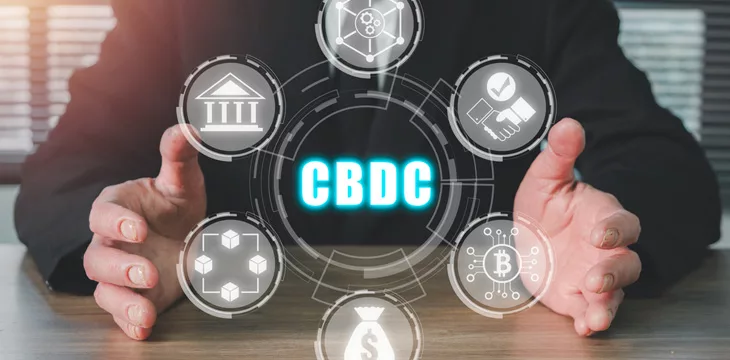|
Getting your Trinity Audio player ready...
|
Project mBridge is one of the many exciting projects launched by the Bank for International Settlements (BIS), which announced that it had entered the Minimum Viable Product (MVP) stage.
Developed by the BIS in conjunction with the central banks of China, Hong Kong, the United Arab Emirates and Thailand, Project mBridge will utilize tokenized central bank digital currencies (CBDCs) to enable cross-border atomic settlement.
Now that Project mBridge is in the MVP stage, the Central Bank of Saudi Arabia has become the fifth member to join. Each central bank runs a node on the network, which runs on an Ethereum-compatible digital ledger developed by China’s Digital Currency Research Institute (DCRI).
It’s one of the many initiatives the BIS has announced that are bound to shake up the existing financial system. For a full list, check out this link.
Tokenization is a revolution
Tokenization is somewhat of a buzzword these days, but unlike many previous crazes in the digital currency and blockchain industries, this one has legs and will lead to many world-changing use cases.
While Project mBridge will make cross-border settlement faster, providing some much-needed competition for the hopelessly outdated SWIFT system, tokenization can be used for a myriad of use cases. Some examples include the tokenization of real-world assets, goods in the supply chain, in-game assets, carbon credits, and educational/professional credentials.
Of course, tokens in and of themselves don’t achieve much; it’s the ability to issue and move them on an immutable digital ledger that matters. On public blockchains, time-stamped records of every token issuance and movement are recorded publicly, and it’s impossible to change them without consensus between the nodes.
It’s this immutability that enables all the different benefits. Traceability, transparency, efficiency, increased accountability, and a reduction in fraud are all benefits of having a tokenized world on a public blockchain.
Opinion: Walled gardens have limited uses
Just as in the early days of the internet, there are many different competing blockchain networks today. Some are public and permissionless, meaning anyone can build on them, whereas others are private, such as the digital ledger Project mBrdige will run on.
While we still have intranets and many different private computer networks today, real changes have happened on the internet. It’s the open, permissionless, and interoperable network that changed the world in unimaginable ways, and this will be the case with blockchains and digital ledgers, too.
Tokenized currencies, assets, and all manner of other things on one unboundedly scalable, programmable blockchain like BSV will lead to a true digital revolution. Applications must be interoperable, and that requires a scalable public blockchain with minuscule fees which anyone can build on.
Once this occurs, it is this author’s opinion that most, if not all, apps utilizing tokens will merge onto one chain, and the blockchain equivalent of the open internet will become a reality. That’s the real revolution, and I’ll be here reporting on it all the way.
To learn more about central bank digital currencies and some of the design decisions that need to be considered when creating and launching it, read nChain’s CBDC playbook.

 02-26-2026
02-26-2026 




